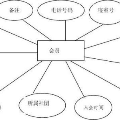Byzantine quorum systems provide higher throughput than proofof-work and incur modest energy consumption. Further, their modern incarnations incorporate personalized and heterogeneous trust. Thus, they are emerging as an appealing candidate for global financial infrastructure. However, since their quorums are not uniform across processes anymore, the properties that they should maintain to support abstractions such as reliable broadcast and consensus are not well-understood. In this paper, we first see a general model of heterogeneous quorum systems where each participant can declare its own quorums, and capture their properties. It has been shown that the two properties quorum intersection and availability are necessary. In this paper, we prove that they are not sufficient. We then define the notion of quorum inclusion, and show that the three conditions together are sufficient: we present reliable broadcast and consensus protocols, and prove their correctness for quorum systems that provide the three properties.
翻译:拜占庭仲裁系统比工作证明具有更高的吞吐量,并且只产生温和的能源消耗。此外,它们现代化的版本包括个性化和异构信任。因此,它们正在成为全球金融基础设施的有吸引力的候选者。然而,由于它们的仲裁对进程不再是统一的,因此支持可靠广播和共识等抽象所需要维护的属性尚不清楚。在本文中,我们首先看到异构仲裁系统的一般模型,其中每个参与者都可以声明自己的仲裁,并捕获它们的属性。已经证明了交叉区域和可用性是必要的。在本文中,我们证明它们不足够。然后我们定义了仲裁包含的概念,并展示了三个条件是足够的:我们提供可靠广播和共识协议,并证明了对于提供这三个属性的仲裁系统的正确性。

